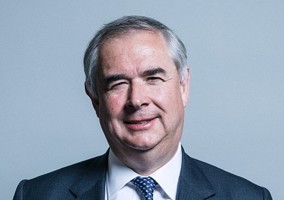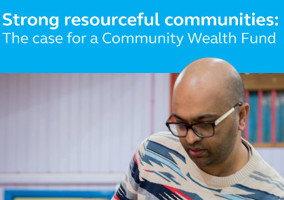On 24 June 2016, I received a text from my 15 year old daughter who had just woken to the results of the Brexit vote. ‘Mum!’ She wrote. ‘I just heard the news. What will happen to the country? I’m worried about the economy.”
I was amused by the sentiments of someone who had only just got up at lunchtime and had never shown any inclination to contribute to the economy!
But the truth is, whilst for some it was a day for celebration for others it was a bruising, shocking day.
In the days and weeks that followed the post mortem discussions focused on the deep divisions in UK society. And the fact that many people and communities who voted to leave the EU felt ignored and left behind. Disenfranchised. Many organisations felt impelled to think about what the vote might mean for them and for the country.
For the many trusts and foundations that focus on culture, community, disadvantage and discrimination, it made us think hard about the purpose and impact of philanthropy in the 21st century.
Clear gaps
As a founder of the Campaign to End Loneliness it also made me think. Over the last ten years we have seen many local initiatives flourish from community navigators, to good neighbour schemes, to social prescribing, to Men’s Sheds and street parties and 21st century tea dances. But nevertheless there were some clear gaps.
Firstly, it was obvious that the more prosperous communities had the capacity and volunteers to create and support local initiatives. Many of the most deprived did not. Some ethnic minority communities, people with long term conditions, disabilities and dementia, older gay and lesbian people, and traveller communities remained outside and boundaried from mainstream services. And one of the biggest gaps was in the availability of small scale ‘community chest’ funds to buy a van, pay for room hire, or part-time support workers, to patch up community halls, purchase gardening equipment, or supply tea and biscuits.
In many areas this money simply wasn’t available and where it was there could still be a lack of long term sustained commitment for communities to call on.
For years, funders like the Lottery, Nesta and trusts and foundations have noted the gaps in funding applications from some of the most deprived communities. Efforts have been made to encourage more place-based funding to bridge the gaps. But we are still far from having reinvigorated the social capital and infrastructure of communities in a way which cedes power and control to them and allows them to determine and shape local priorities.
Sometimes the demand for strategic impact, the imperative to demonstrate a return on investment relatively quickly and an emphasis on cost saving has focused resources on large scale interventions, which tend not to touch the most ‘left behind’ or deprived areas. Without a paradigm shift there is a risk that priorities (and fashions) change without delivering long term impact in these communities.
Questions for funders
Julia Unwin’s Civil Society Futures Inquiry posed some important questions for funders.
- How do we use our power and share decision-making and control with our communities?
- How do we hold ourselves accountable to the causes and communities we support?
- How do we broaden and deepen connections with people and support a new social infrastructure?
- How do we build and extend trust?
ACF’s Stronger Foundations programme explores ideas too about how philanthropy itself continues to adapt and change in the light of changes in the environment. Not just within civil society but the wider ecosystem of government and policy and the changing dynamic of need and disadvantage.
Paradigm shift
So the proposal for a Community Wealth Fund comes at a crucial time for philanthropy. It presents an opportunity to use dormant funds to create a paradigm shift – empowering people in left behind communities to determine their own priorities and invest in the social capital of their neighbourhoods.
With sustained and patient capacity building comes a unique chance to shift power and trust from beneficence and philanthropy to people and places. The ambition that the fund articulates has been widely welcomed by many varied organisations. The need is urgent.
It would be enormously pleasing to see something lasting and empowering to come out of the bitter divisions laid bare by the Brexit vote. Community health and wealth matters more than ever if we are to preserve a sense of shared values and nation.
Janmet Morrison is chair of the Association of Charitable Foundations
|












